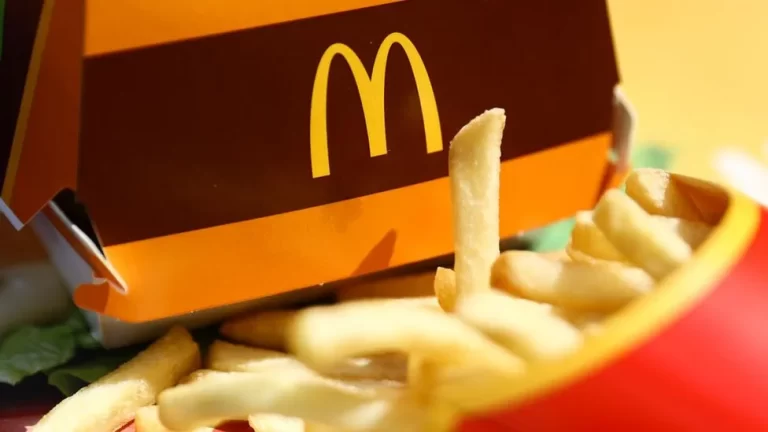McDonald's has missed a key sales target, partly due to customers boycotting the firm for its perceived support of Israel.
The fast food chain reported its first quarterly sales miss in nearly four years due to weak growth in its international business division.
Its boss previously acknowledged the impact of the conflict, blaming “misinformation”. Shares in McDonald's fell about 4% after the announcement.
McDonalds is one of several Western corporations including Starbucks and Coca Cola that have seen boycotts and protests against them by anti-Israeli campaigners. The firm said that the Israel-Gaza conflict had “meaningfully impacted” performance in some overseas markets in the fourth quarter of 2023.
In the branch which includes sales in the Middle East, China and India, sales growth stood at 0.7% in the fourth quarter of 2023 – far below market expectations. Its business in Malaysia, Indonesia and France have been affected, with the biggest impact felt in the Middle East, chief executive Chris Kempczinski said on Monday.
“So long as this war is going on… we're not expecting to see any significant improvement [in these markets],” the McDonald's boss added.
McDonald's relies on a franchise system in which thousands of independent businesses own and operate most of its more than 40,000 stores around the world. About 5% of its outlets are located in the Middle East.
The fast food retailer drew criticism after its Israel-based franchise said it had given away thousands of free meals to members of the Israeli military, sparking calls to boycott the brand by those angered by Israel's military response in Gaza.
It prompted franchise owners in Muslim-majority countries such as Kuwait, Malaysia and Pakistan to put out statements distancing themselves from the firm. Mr Kempczinski called the backlash “disheartening and ill-founded,” and blamed it on “misinformation”.
McDonald's global sales grew by just under 4% in the fourth quarter, down from 8.8% in the previous quarter, and below its annual average. The corporation benefitted from price inflation, recording its strongest sales growth in the United States, while also growing sales in the UK, Germany and Canada.
But its US business saw weaker sales growth than hoped, as customers on lower incomes ordered less food and opted for cheaper items on the menu. Last week, Starbucks also cut its annual sales forecast, partly due to fewer customers visiting stores in the Middle East.
McDonald's said on Monday that its thoughts were with the families and communities impacted by the conflict in the region. It said it would “continue to stay focused on supporting our people and the local communities in which we operate”.
— CutC by bbc.com


